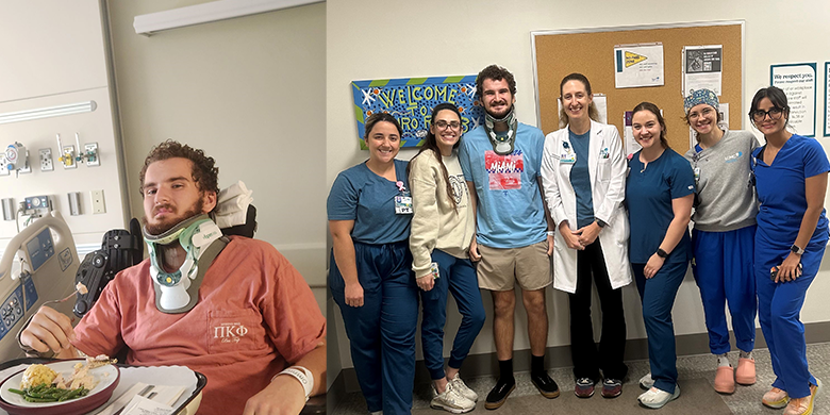7 ways to prepare your child for sleepaway camp
- Posted on:

Swimming. Canoeing. Hiking. Archery. Summer camp activities can be a lot of fun—especially in and near the lakes, bayous, and forests of Louisiana. But sending your child to an overnight camp away from home is a big step. It requires both practical and emotional preparation.
Learn what you can do to ease those sleepaway camp jitters, so your child gets the most out of their adventure.
1. Get to know the camp
There are so many summer camps to choose from in and near New Orleans. When you find one you like, make sure you do your research. Where is the camp located? How long has the camp been around? What activities are available for campers? You and your child will feel more comfortable if you know what to expect.
Take a camp tour
If possible, tour the camp and attend their open house with your child. Seeing the space in person makes it more familiar. You also have the chance to learn about the facility, so you know what to pack for your child’s comfort and safety.
While you’re there, ask for your child’s camp schedule and how you can contact them.
Meet camp staff
It’s helpful to know who will take care of your child. Talk to the camp staff. If you’re worried that your child will get sick or hurt, discuss it with the camp nurse. If you’re nervous about your child’s food allergies, chat with the camp’s chef.
2. Practice being independent at home
You can make the transition to sleepaway camp easier for your child by practicing independence with them at home. That can mean teaching them how to wash and fold clothes, make their bed, or keep their toiletries neat and tidy.
3. Host a pre-camp sleepover
If you’re anxious that your child won’t know anyone at camp, consider hosting a pre-camp get-together. Meeting other campers ahead of time can help your child find a friendly face or two at camp.
If your child isn’t used to sharing or rooming with another child, start having some mini sleepovers to prepare them. You can have them practice sleeping away from home with friends or relatives.
4. Review water safety and sun safety
When on or near water, teach your child to wear a life jacket. Also establish rules, like don’t dive in unfamiliar water and only swim when a lifeguard is present. Knowing and practicing these rules at home can help protect them during water activities at camp.
Sun safety [HB1] is important, too. Make sure your kiddo knows to wear a hat and sunscreen when in the sun and to drink lots of water throughout the day to stay hydrated.
5. Make a summer camp packing list together
Coming up with a camp packing list can be a lot of fun. When you do the activity with your child, it gives them ownership over the experience. Let them add objects that hold sentimental value, which may reduce homesickness.
After finalizing your list, gather all your supplies and pack them together.
6. Talk about what to do if they’re homesick
Discuss homesickness, including what it is, with your child. Reassure them that it’s a normal feeling. They may miss home, but camp is a fun place to learn and explore.
It can help to teach them ways of coping with any anxiety or stress, such as deep breathing. When that doesn’t work, or if they’re homesick for days, let them know it’s okay to call home.
7. Stay positive and have fun
Try not to let any worries get in the way of your child having a fun time at camp—after all, fun is what it’s all about. Focus on what they’ll gain from their adventure, such as confidence, self-esteem, new friends, and new experiences. You can even have them write down their goals.
They’re more likely to enjoy themselves if they’re excited and go in with a positive attitude.
Primary care to keep you well all summer long
During all your summer fun, don’t forget to schedule your child’s annual exam with their primary care provider. Primary care is a great way to stay healthy—both before, during, and after summer camp. Find a provider or schedule your appointment today.
[HB1]Link to May sun safety article.
